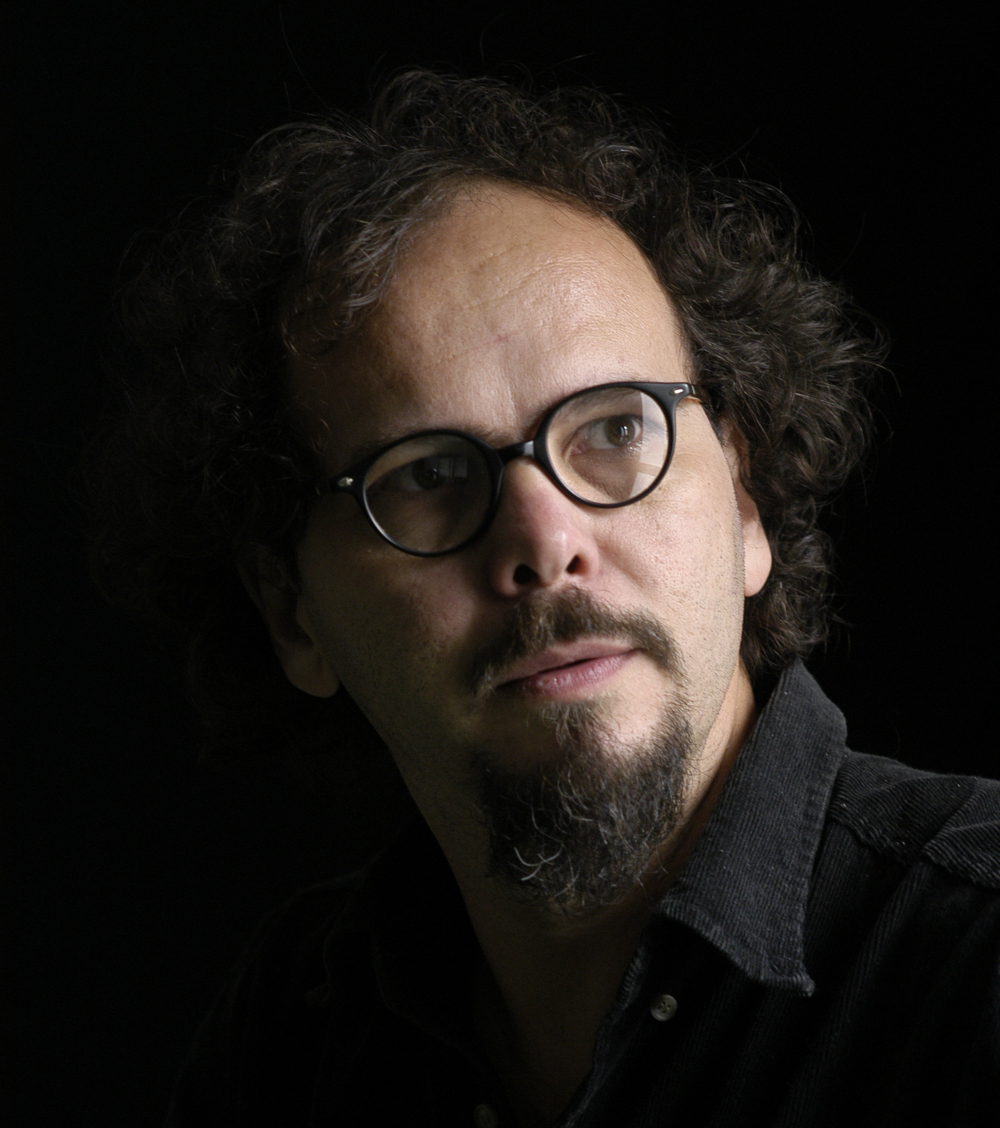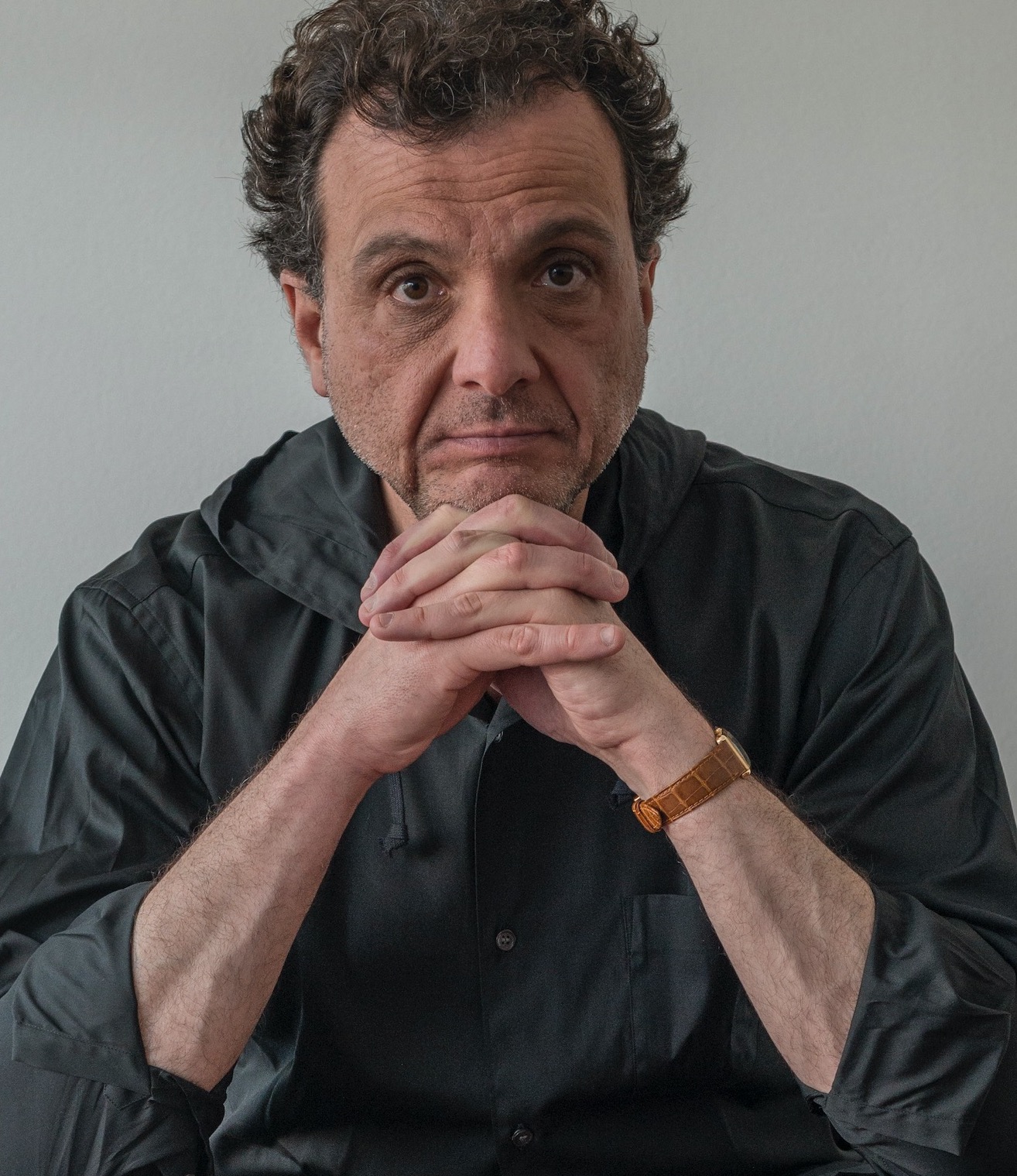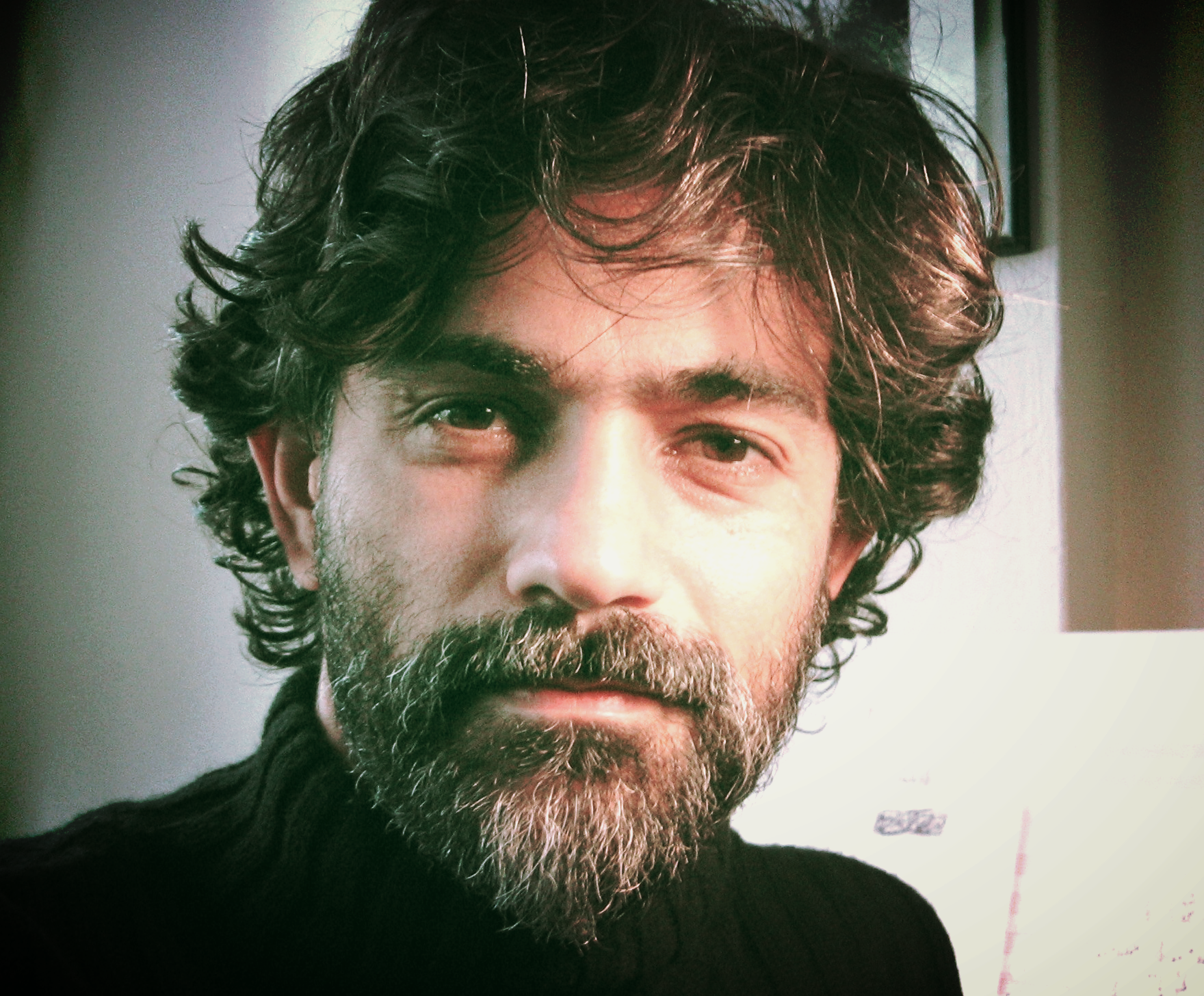

UE composers from Brazil
UE composers from Brazil

Bruno Ruviaro
*22 April 1976
Bruno Ruviaro (1976) is a US-based Brazilian composer and electronic musician who creates acoustic, electroacoustic, and live-electronics works. His music has been presented at festivals and concert halls in Brazil, Latin America, Europe, and the USA. Ruviaro completed a Master's Degree in ElectroAcoustic Music from Dartmouth College (2004), and a DMA in Composition from Stanford University (2010) under Mark Applebaum and Brian Ferneyhough. He spent a year studying at Ircam in 2008-09, and was for many years an active composer at CCRMA (the Center for Computer Research in Music and Acoustics, Stanford University). His music has received prizes from Darmstadt Festival (Germany), Funarte (Brazil), Keio University (Japan). He published the book "A Gentle Introduction to SuperCollider", a step by step guide to music programming. Since 2012, he teaches Music Composition, Theory, and Electronic Music at Santa Clara University, where he founded SCLOrk: the Santa Clara Laptop Orchestra.

Flo Menezes
*18 April 1962
Flo Menezes (São Paulo, 1962) is considered one of the leading composers of his generation. With a solid work in several genres – orchestral music, opera, chamber music, mixed electroacoustic music, acousmatic music, works for choir, solo instruments with or without interaction with electronics in real time and deferred time –, he is the holder of several international awards: TRIMALCA (1993), Ars Electronica (1995), Luigi Russolo (1996), Sérgio Motta Prize (2002), Bolsa Vitae (2003), Diapason d'Or (2006), Giga-Hertz-Preis (2007; this one with P. Boulez, W. Rihm and H. Vaggione in the International Jury), etc.
His work has been premiered at Carnegie Hall in NY and in important theaters around the world, and his music has been performed at international festivals and by renowned ensembles and orchestras: Ensemble Recherche, Ictus, New Century Players, Ensemble Orchestral Contemporain, SWR Vokalensemble and Neue Vocalsolisten Stuttgart, Arditti String Quartett, Contrechamps, Contemporary Chamber Players NY, Plural Ensemble Madrid, Sond'Ar-Te Electric Ensemble Lisbon, London Sinfonietta, PIAP (São Paulo), Collegium Novum Zürich, Les Percussions de Strasbourg, NYNME (New York New Music Ensemble), Camerata Aberta, OSESP, Tonhalle Orchester Zürich etc.
Since 1983 (at the age of 21), Flo Menezes has defined his music as maximalist, even before the New Complexity fad came to the fore. His music is built on a 5-Pointed-Star by which the composer defines 5 fundamental elements of composition: materials, variations, directionalities, connections and craftsmanship.
Since the 1980s, he has been developing techniques of musical writing with which he has been working: cyclic modules, proportional projections, pronunciation-form, rhythmic rotations, durative writing, etc.
As a theorist, he is the author of about 20 books, published in Brazil and Europe, such as the internationally awarded book on the work of L. Berio in 1990. He was a composition student of Willy Corrêa de Oliveira (1980-85) at the University of São Paulo (USP) and of Hans Humpert at the Studio für elektronische Musik in Cologne (1986-90), Germany, and took courses with Boulez (1988), Berio (1989), Pousseur (supervisor of his PhD in 1987-92), Ferneyhough (1995) and Stockhausen (1998), of whom he became teaching assistant at the Stockhausen Kurse in Kürten in 1999 and 2001.
He is Full Professor of Electroacoustic Music, founder and director of the main studio of the genre in Latin America: the Studio PANaroma, of Unesp (State University of São Paulo).
There are several entries about the composer in important encyclopedias, as those two below:
1) Die Musik in Geschichte und Gegenwart: Allgemeine Enzyklopädie der Musik
Article by Ralph Paland: Personenartikel "Menezes, Flo", in: Die Musik in Geschichte und Gegenwart: Allgemeine Enzyklopädie der Musik, 2., neubearbeitete Auflage, Hg. Ludwig Finscher, Supplement, Bärenreiter/Metzler, Kassel/Stuttgart, 2008, pp. 546-547. ISBN (Supplement): 978-3-7618-1139-9.
2) "Flo Menezes"
Long analytical essay (in German) on the composer and his works (26 pages) by Ralph Paland, in: KdG – Komponisten der Gegenwart, edition text + kritik im Richard Boorberg Verlag, Lieferung vom Juni 2014:
http://www.nachschlage.NET/document/17000000906
Website: www.flomenezes.mus.br
YouTube: https://www.youtube.com/channel/UCtmMj33DT6JvUGpNdvQ0zfg

Miguel Kertsman
Miguel Kertsman’s compositions span music genre boundaries encompassing Symphonic, Chamber, and Vocal music for the Classical Concert Stage, as well as Theater, Experimental, Jazz, and Electronica. Works have been commissioned, performed, or recorded by artists such as mezzo-soprano Angelika Kirchschlager, guitarist John Williams, conductor Dennis Russell Davies, and orchestras including the Vienna Symphony Chamber Orchestra, the London Philharmonic, the Bruckner Orchestra Linz, São Paulo State Orchestra, the Saint Paul Chamber Orchestra among others.
Performances of his works at venues including Weill Hall at Carnegie Hall NY, Halls at the Konzerthaus and Musikverein Vienna, Bregenz Opera Festival, Franz Liszt Festival, St. Paul's at Covent Garden, Memorial da América Latina Brazil, The United Nations, The Olympics, The World Expo, among others.
Kertsman's music has been globally released or published by Sony Classical, RCA Victor/BMG, Universal Edition, Naxos Records and other labels and publishers. Miguel Kertsman has designed post-graduate programs, curricula and courses in Composition, music production and management, holding lectures, masterclasses and colloquia at universities including Dartmouth College, Danube University Krems, Northwestern University, the Sibelius Academy, Helsinki Arts University, the Janáček Academy, and elsewhere.
In addition to his composition work, as a solo recording artist Kertsman’s progressive compositions, experimental Jazz-Rock and Global Music releases and unique keyboard playing have also earned him a place on the international scene.
Brazilian-American composer Miguel Kertsman, born in Recife in 1965, graduated from Berklee College of Music in 1986 with honours, subsequently continuing conducting studies with Attilio Poto at Boston Conservatory, and composition with Stanley Wolfe at New York’s Juilliard School.

Rodrigo Lima
*25 September 1976
Brazilian composer, Rodrigo Lima is one of the most active composers of his generation, his music has been performed at festivals and concert halls in Latin America, Europe and the USA. His production includes orchestral music, chamber music, solo instruments, vocal music and works for choir.
In 2008, he was resident composer of the 5th International Forum of Young Composers in Paris with Ensemble Aleph. In 2015, his work Antiphonas for saxophone and ensemble premiered at the 17th World Saxophone Congress & Festival in Strasbourg (France). In 2016, he received the order from the Festival International des Arts de Bordeaux (France) to compose the work Txury-ò: ‘caminho por onde vai o sol’ inspired by the cosmology of the Karajá Indians and dedicated to the french ensemble Proxima Centauri.
He has obtained some prizes in National and International Competitions:
· Prize International Iberoamericano Rodolfo Halffter of Composition 2008 in Mexico.
· Prize ‘Francisco Guerreiro Martín’ at the ‘XVII Premio Jóvenes Compositores 2006 Fundación Autor-CDMC’ in Madrid, Spain.
· Prize for Classical Composition of the National Arts Foundation (FUNARTE) 2010 in Brazil.
· 1ºst Prize of the National Competition Camargo Guarnieri of Composition 2005 in Brazil.
· 1ºst Prize Camargo Guarnieri of Composition, Campos do Jordão International Winter Music Festival 2009 in Brazil, and others.
Lima’s Music has been performed by the Ensemble Aleph (France), Ensemble Linea (France), Proxima Centauri (France), Abstrai Ensemble (Brazil), Camerata de las Amércicas (Mexico), Sonor Ensemble (Spain), Orchestutropica (Lisboa-Portugal), Abstrai Ensemble (Brazil), Camerata Aberta (Brazil), University of São Paulo Symphony (Brazil), Claudio Santoro National Theater Symphony Orchestra (Brazil) and conductors Claudio Cruz (Brazil), Guillaume Bourgogne (France), Luis Aguirre (Spain), Cesário Costa (Portugal), Kirk Trevor (England) and Claudia Feres (Brazil).
His main composition teachers were Estércio Marquez Cunha, Sergio Nogueira, Conrado Silva and Silvio Ferraz. Bachelor in Musical Composition Degree at the Department of Music University of Brasília and Masters in "Creative Processes" at the University of Campinas State in São Paulo. He also took courses with composers Stefano Gervasoni (Italy), Claude Ledoux (Belgium) and Emmanuel Nunes (Portugal).
Rodrigo Lima is teacher of composition at the 'EMESP’- School of Music of São Paulo State. Lima is a member of the General Society of Authors and Editors ‘Sociedade General de Autores y Editores (SGAE)’ in Spain.
